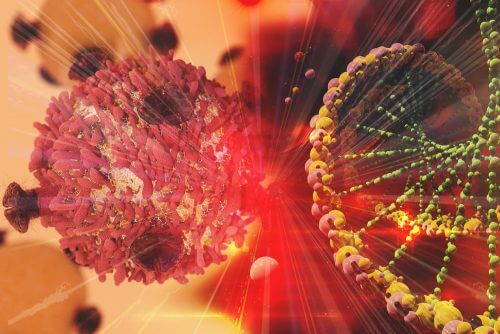One of the biggest difficulties in the treatment of cancer is that there is no one drug that is suitable for all patients: most of the drugs for a certain type of cancer work well for some, but have little effect on others. This is true not only for the traditional chemotherapy treatments, but also, and even more so, for the new immunotherapy treatments

One of the biggest difficulties in the treatment of cancer is that there is no one drug that is suitable for all patients: most of the drugs for a certain type of cancer work well for some, but have little effect on others. This is true not only for the traditional chemotherapy treatments, but also, and even more so, for the new immunotherapy treatments. Recently, Weizmann Institute of Science scientists have identified new markers that may help predict which patients have a better chance of responding to immunotherapy. Their findings are published this week in the scientific journal Nature Communications.
Thanks to the development of immunotherapy treatments, which harness the cells of the immune system to fight cancer, recovery rates from melanoma skin cancer have increased significantly in recent years. However, despite the relative success, many patients do not respond to treatment for unknown reasons. To understand what influences the success of immunotherapy in melanoma patients, the team of researchers - led by postdoctoral researcher, Dr. Shelly Claura, from the research group of Prof. Jordana Samuels in the department of molecular cell biology at the institute, and Joe Sang Lee, from the group of Eitan Rupin - contacted At the National Institutes of Health in the United States (NIH) - to the "The Cancer Genome Atlas" database. The researchers extracted from there comprehensive data on 470 melanoma patients, analyzed them and identified a relationship between the survival of the patients and the level of expression of certain components of the "immunoproteasomes" (immunoproteasomes) in their cancer cells.
When the researchers returned to the patient data, they saw that the expression levels of the immunoproteasomes could indeed predict the success of immunotherapy. Moreover, they saw that these levels predict the chances of success better than the biological marker that is currently used to adjust medical treatment for cancer patients"
Proteosomes are cellular devices that "cut" long protein chains into short protein pieces, called peptides. Peptides may be "displayed" outside the cell and serve as "signposts" that inform the immune system of new threats to prepare for. The immunoproteases are derivatives of the proteasomes that appear following inflammatory processes. Since the structure of the subunits of the immunoproteasomes is different from that of the subunits in the proteasomes, the peptides that these units produce are also different. In light of the relationship discovered between the patients' survival and the level of expression of these subunits, the researchers hypothesized that the peptides produced by the immunoproteasomes may lead to a better recognition of the tumor cells by the immune system - thus leading to a more effective elimination of cancer cells and increasing the patients' chances of survival.
The researchers decided to test the hypothesis: they grew cancer cells taken from melanoma patients in culture, caused some of them to overexpress two subunits of the immunoproteasome and mapped the peptides presented outside the cells. Later, the scientists added to the cultures, cells of the immune system taken from the patients, and saw that the peptides created in the cells where there was an overexpression of the subunits, indeed provoked a stronger immune response compared to the peptides presented in the cells without overexpression.
When the researchers returned to the patient data, they saw that the expression levels of the two subunits of the immunoproteasomes could indeed predict the success of immunotherapy. Moreover, they saw that these levels predict the chances of treatment success better than the tumor mutational burden biomarker that is currently used to adjust medical treatment for cancer patients. In light of these findings, the scientists believe that the expression levels of the subunits of the immunoproteasomes may serve as a successful biological marker for the chances of success of immunotherapy, and that a connection between this marker and the marker of the mutation load, may allow a personalized adjustment of the treatment for cancer patients.
